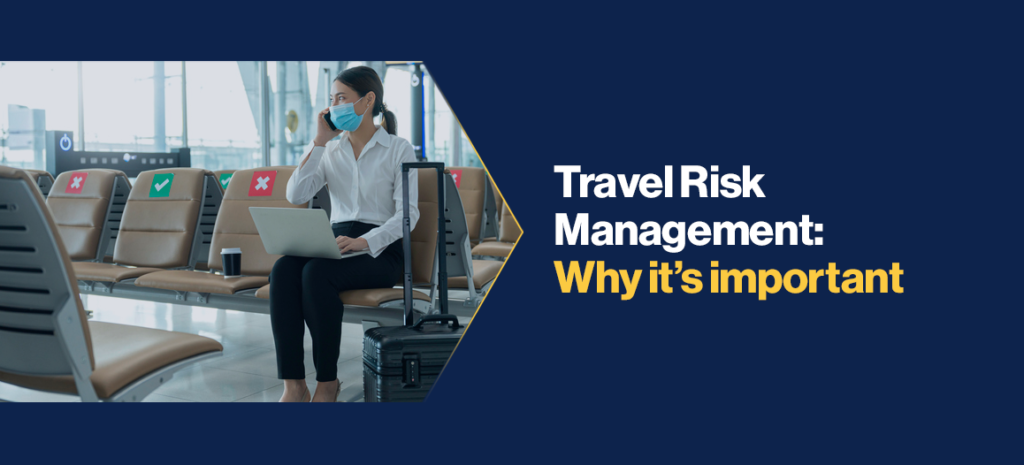A travel risk management provider is a company or organization that offers services to help individuals or businesses manage the risks associated with traveling. These providers typically offer a range of services, including pre-trip planning, risk assessment, emergency response planning, and on-the-ground support during a crisis.
The goal of travel risk management is to identify potential risks and develop strategies to mitigate them, with the ultimate aim of keeping travelers safe and healthy while abroad. This can include everything from monitoring political or environmental risks to providing medical and security assistance in case of an emergency.
Table of Contents
Understand What Your Traveler’s Needs Are:

To understand what your traveler’s needs are, you should consider the following:
1). Type of Trip:
Understanding the type of trip your traveler is taking can help you anticipate their needs. For example, a business trip may require a more formal setting and amenities, while a leisure trip may require more flexibility and relaxation.
2). Destination:
Different destinations may have unique threats, needs, and requirements. For example, one location may have high probability of threats surrounding crime, while another trip may have a significantly increased risk of natural threats such as disease, or severe weather.
3). Purpose of the Trip:
Understanding the purpose of the trip can help you anticipate the traveler’s needs. For example, a traveler attending a conference may require more focus on meeting facilities and access to technology, while a traveler on a family vacation may require more focus on child-friendly amenities and activities.
4). Personal Preferences:
Understanding your traveler’s personal preferences can help you tailor their experience. For example, a traveler who prefers healthy food options may require access to fitness facilities and healthy food options, while a traveler who enjoys luxury experiences may require more upscale accommodations and amenities.
5). Traveler Feedback:
Soliciting feedback from your traveler can help you understand their needs and preferences. Encouraging open communication and feedback can help you tailor their experience and ensure their satisfaction.

Offer A Variety Of Solutions
Travel risk management is a crucial aspect of any business or organization that has employees frequently travel. To ensure the safety and security of employees, it is essential to offer a variety of solutions that can address different risks and scenarios. Some of the solutions that can be implemented include pre-travel risk assessments, real-time travel tracking and alerts, crisis response plans, 24/7 emergency assistance, travel insurance, and employee training on safety and security best practices.
Additionally, implementing a comprehensive travel risk management program that combines multiple solutions can help mitigate risks and provide a more robust approach to managing travel-related issues. By offering a variety of solutions, organizations can better protect their employees and minimize the impact of any potential travel-related incidents.
Invest in a travel risk management provider
A travel risk management provider is a specialized company that helps businesses manage the risks associated with employee travel. These providers offer a range of services, including pre-trip planning and preparation, real-time monitoring and tracking, crisis management and response, and post-trip analysis and reporting.

One of the primary benefits of investing in a travel risk management provider is that it allows businesses to be proactive in managing the risks associated with employee travel. By partnering with a provider, businesses can receive expert guidance on how to identify and mitigate potential risks, develop comprehensive travel policies and procedures, and ensure that employees are adequately prepared for any eventualities.
For example, a travel risk management provider may conduct pre-trip assessments to identify any potential health, safety, or security risks associated with a particular destination. They may also provide training and education to employees on how to avoid or mitigate these risks, such as avoiding certain areas or taking specific precautions while traveling.
During the trip, a travel risk management provider can monitor employees’ movements and provide real-time alerts and updates on any emerging risks, such as natural disasters, political unrest, or other potential threats. This can help businesses make informed decisions about whether to alter travel plans, evacuate employees from affected areas, or take other appropriate measures to protect their employees.
In the event of an emergency, a travel risk management provider can provide immediate assistance and support to affected employees, such as arranging medical care, evacuation, or repatriation. They can also assist with crisis communication, ensuring that employees, their families, and other stakeholders are kept informed and updated on the situation.
